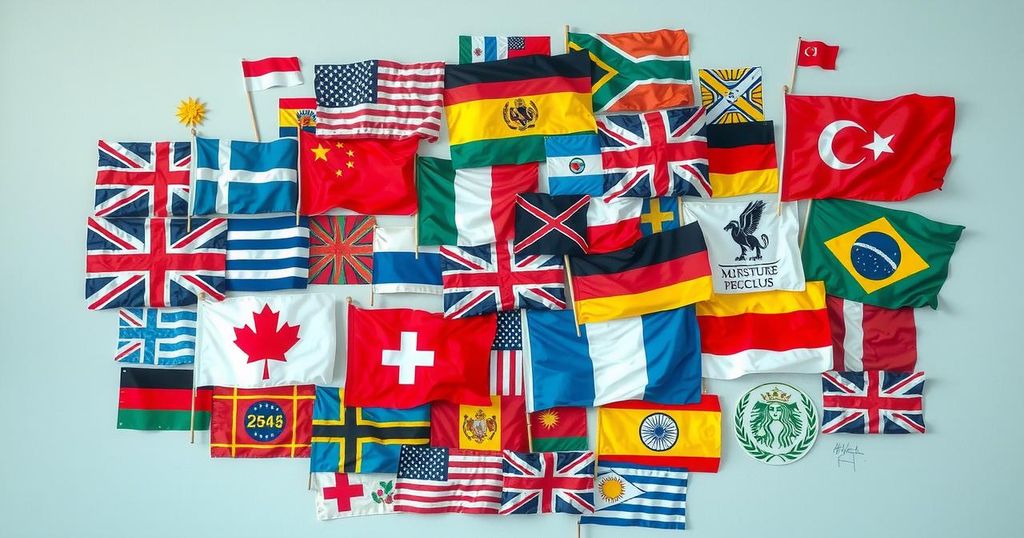Controversy Erupts Over South African Refugees as Race Sparks Debate
A small group of South African refugees arrived in the U.S. following an executive order by Trump, prompting backlash from liberal factions. Despite typically advocating for refugees, they seem troubled about these particular Afrikaners, largely due to their race. This response raises questions about asylum policies, highlighting perceived contradictions in the left’s stance on identity politics and humanitarianism.
A notable development unfolded as a group of South African refugees arrived in the United States, following an executive order signed by former President Donald Trump. The situation has stirred controversy particularly among liberal factions, who seem less welcoming than usual. Just 59 South African Afrikaners, acknowledged as needing asylum, have sparked a considerable backlash from those who typically advocate for refugee support.
Despite their usual stance of inclusivity, left-wing commentators and politicians reacted with unexpected fervor to these arrivals. The figures remain paltry—59 individuals do not even fill a trans-Atlantic flight—especially when compared to the staggering numbers welcomed under President Biden. Yet, the left seems deeply unsettled by this relatively small group coming to the U.S. Seeking to quiet various concerns, the Episcopal Church announced a halt to its refugee resettlement efforts.
The discomfort among the left appears to stem from the race of these refugees—white South Africans. Former Democratic Representative Donna Edwards articulated this sentiment, suggesting that their race is a point of contention regarding who qualifies for asylum. In fact, some commentators even suggested that these refugees should return to their supposed ancestral homes in Europe.
This line of thinking raises eyebrows. The Afrikaners trace their roots back to Dutch settlers who arrived in South Africa long before many current Black residents. Asking them to return to distant lands after centuries is reminiscent of some extreme nationalistic ideologies that do not typically dominate American discourse. Critically, why not allow them to seek refuge here in light of the threats they face in South Africa?
Senator Chris Van Hollen’s remarks illustrate the left’s duality on refugee matters. While speaking out against Trump’s asylum policies, he criticizes the prioritization of the Afrikaners over other refugees fleeing significant dangers. Van Hollen’s views were echoed with concerns regarding the legitimacy of Afrikaner refugees, even though many have faced violence and discrimination back home.
The issues Afrikaners encounter in South Africa are pertinent—recent years have seen numerous attacks and murders targeting them, often attributed to racial animosity. The South African government’s hostility towards white landowners complicates the situation further. Statements made by ruling party officials dismissing the existence of Afrikaner refugees raise troubling questions about the conditions in South Africa.
The left’s rejection of these refugees suggests a desire not to address complex narratives surrounding race and history. The reluctance to support Afrikaner refugees reflects an ideological stance that aligns more with historical grievances than with humanitarian assistance. Analysts suggest that the left’s response betrays a paradox of principles, covertly indicating that, for many in the liberal camp, asylum is not truly available for white applicants. It arguably highlights a willingness to voice a troubling narrative of exclusion masquerading as social justice policies.
In summation, the reaction to the arrival of these South African refugees raises questions about the inconsistency in asylum policies among liberal advocates. The focus on identity politics over humanitarian principles illustrates how ideological commitments can overshadow basic tenets of refuge and asylum. As the discourse unfolds, the left seems to be revealing a significant contradiction within its values, making it clear that when it comes to asylum, not all are welcomed equally.
In conclusion, the arrival of South African refugees in the United States underlines striking contradictions in the liberal agenda surrounding refugee assistance. The strong resistance from left-leaning factions raises critical questions about the intersection of race and asylum eligibility. What this situation ultimately reveals is a complex dynamic where ideological commitments challenge the core principles of humanitarianism, especially when it concerns certain demographics. The growing discourse around this issue appears to expose an unsettling truth—that for some, asylum may indeed come with conditions based on race.
Original Source: www.dailysignal.com




Post Comment